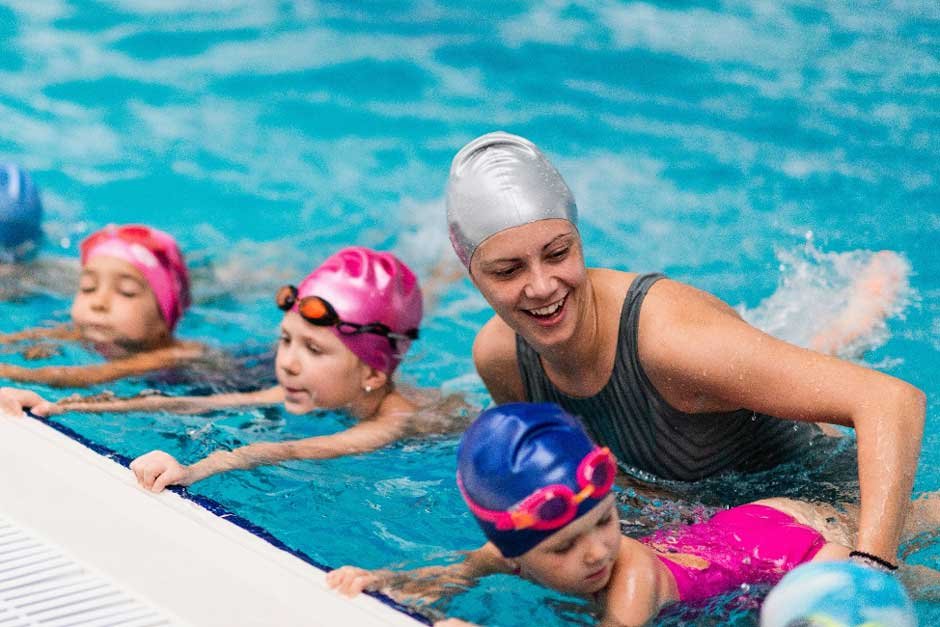Water safety is one of the most critical life skills a child can learn, and the earlier, the better. While some parents may hesitate to start swimming lessons at a young age, research and expert recommendations continue to emphasize the benefits of introducing children to the water early in life. Beyond just splashing around, early swim lessons lay the foundation for safety, confidence, physical development, and lifelong enjoyment of water activities.
Safety First: A Lifesaving Skill
Drowning is one of the leading causes of accidental death in young children, particularly toddlers. Teaching children how to swim at an early age is one of the most effective ways to reduce this risk. According to the American Academy of Pediatrics, swim lessons can begin as early as age one and can significantly lower the chance of drowning. These early lessons don’t just teach kids to float—they also help them learn how to turn, reach the wall, or even climb out of the pool if they fall in.
Starting early helps children become familiar with the water, making them less likely to panic in emergency situations. Parents also become more aware of water safety practices, creating a safer environment overall.
Building Confidence in and Out of the Water
Water can be intimidating for children, especially if they are introduced to it later in life. Early exposure, however, tends to normalize the experience. When children begin swim lessons at a young age, they learn to trust the water and their own abilities. They gain a sense of mastery each time they achieve a new milestone—whether it’s floating independently, kicking across the pool, or simply putting their face in the water.
This confidence often spills over into other areas of life. Kids who swim early tend to show more independence and self-assurance in everyday activities. Learning a challenging skill like swimming at a young age sets a precedent for trying new things, overcoming fears, and celebrating progress.
Physical Benefits: Strength, Coordination, and Development
Swimming is a full-body workout that enhances strength, coordination, and cardiovascular health. For young children, these lessons help develop motor skills, improve balance, and promote muscle tone in a safe, low-impact environment.
Because water provides natural resistance, it helps children build endurance and flexibility as they move. The rhythmic nature of swimming also supports better breathing and can even assist in the development of fine motor control. Studies have shown that children who swim early tend to reach physical milestones faster than their non-swimming peers.
Cognitive and Social Growth
Swimming lessons don’t just promote physical wellness—they also contribute to brain development. Studies suggest that early swimmers may exhibit stronger language, literacy, and math skills. This cognitive advantage is often attributed to the multi-sensory learning experience swimming provides. It requires children to follow instructions, coordinate movements, and stay attentive, all of which sharpen memory and processing skills.
Swim classes also foster social development. Group lessons provide opportunities for children to interact with peers, practice taking turns, and build friendships. These interactions help young swimmers learn valuable social cues, empathy, and cooperative behavior—all in a fun, structured setting.
Creating a Positive Relationship with Water
Children who begin swim lessons early are more likely to develop a lifelong love for water. Whether it’s swimming at the beach, joining a swim team, or simply enjoying pool time with family, comfort in water opens the door to numerous recreational opportunities. These positive experiences can lead to healthier, more active lifestyles as children grow.
Furthermore, early exposure helps prevent fear of water. When a child has had months—or years—of joyful, safe interactions with swimming, they are less likely to experience anxiety when encountering deeper water or new aquatic environments.
Tips for Getting Started
- Start with a qualified instructor: Enroll your child in a swim program that focuses on infant and toddler development, led by certified instructors who understand both safety and age-appropriate teaching techniques. If you’re considering building your own backyard pool for regular practice, partnering with a trusted pool builder in Utahcan help you design a safe, child-friendly space.
- Be consistent: Regular lessons—ideally weekly—help reinforce skills and build familiarity.
- Make it fun: Use toys, songs, and games to keep the experience positive.
- Stay patient: Every child learns at their own pace. Focus on progress, not perfection.
- Practice safety at all times: Never leave children unattended near water, even after they’ve started lessons.
In Conclusion
Teaching your child to swim early is one of the greatest gifts you can give. The benefits go far beyond the pool—improving safety, building confidence, enhancing physical and cognitive development, and fostering a lifelong appreciation for water. Tiny swimmers grow into strong, confident individuals, and it all begins with a few simple splashes.
